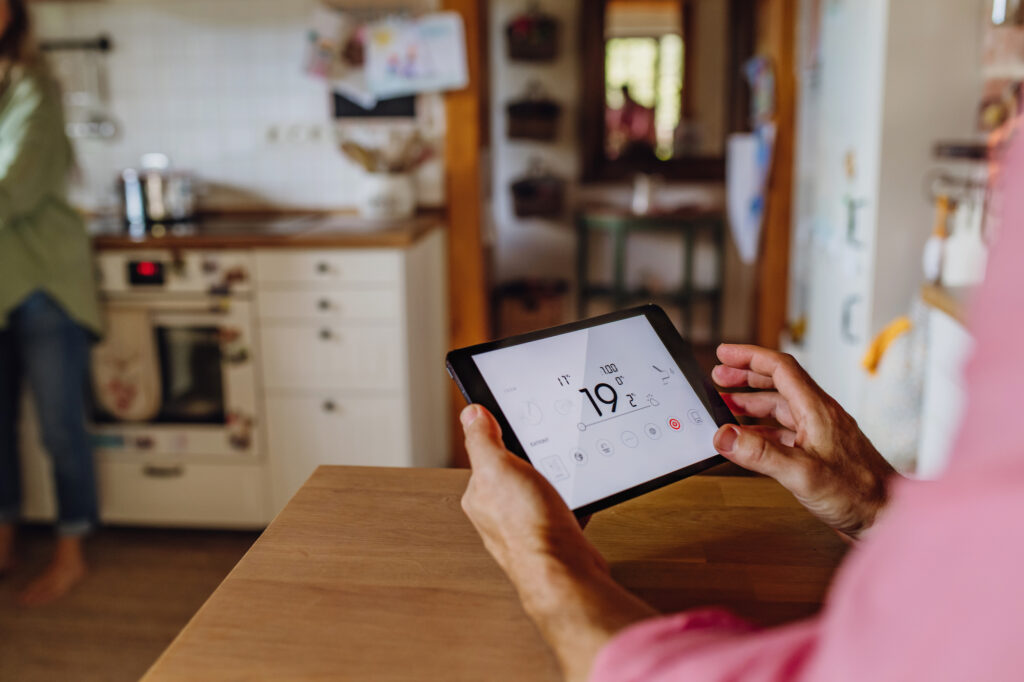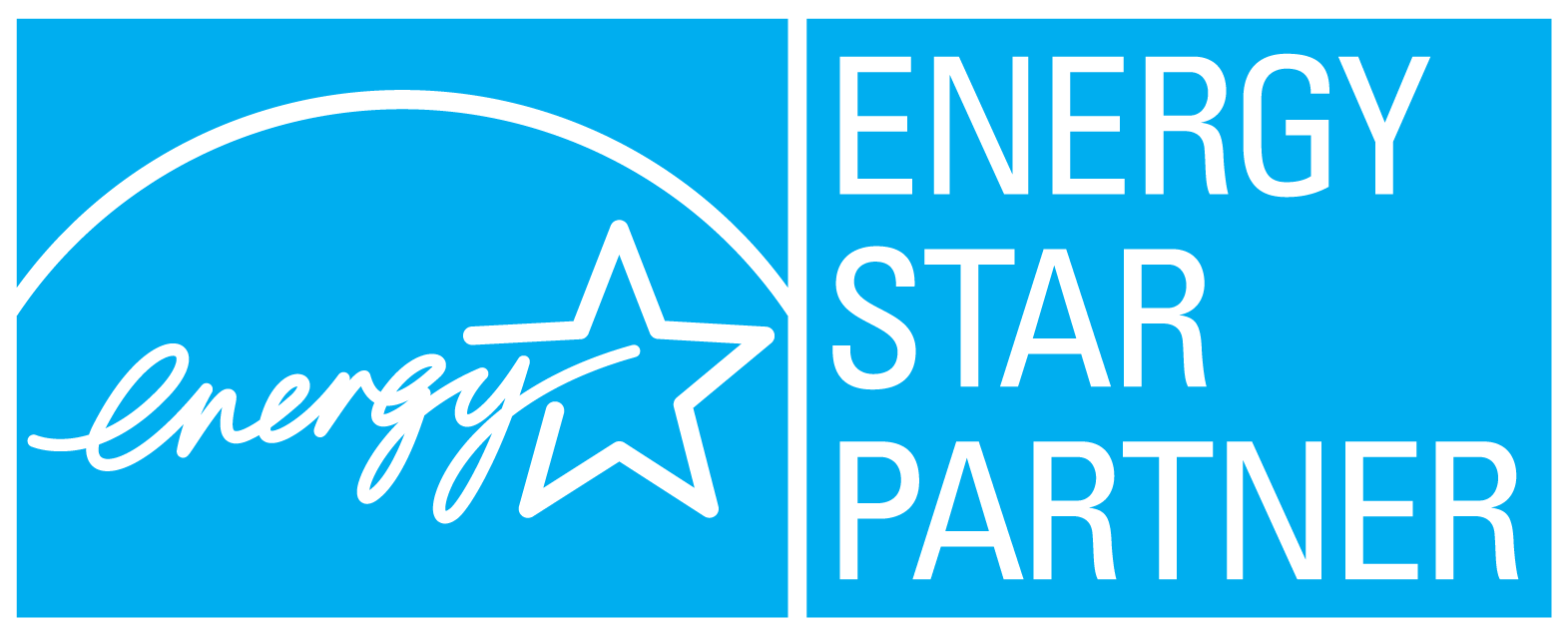In recent years, the integration of smart home technologies has become a pivotal approach in enhancing energy efficiency, water conservation, and overall sustainability within residential environments. These technologies not only contribute to a more sustainable lifestyle but also offer the convenience of automated home management systems.
That’s why more and more people are integrating smart technology into their new custom home builds. These systems are by far the most effective when they are installed in homes designed from the ground up to maximize efficiency. If you’re preparing to build your own custom home in Colorado, you have a golden opportunity to integrate smart technology into the structure and make your residence more efficient for decades to come.
There are a wide variety of features you can consider adding to your home during the design process. Below, we’ll explore various aspects of smart technologies that facilitate sustainable living, including energy efficiency improvements, water conservation measures, and the broader impact on sustainability.
Energy Efficiency and Smart Homes
Energy efficiency stands at the forefront of the sustainable living movement. Smart home technologies play a critical role in optimizing energy use, thus reducing the carbon footprint of households. The implementation of smart thermostats, energy-efficient lighting, and intelligent HVAC systems are among the key advancements.
Smart Thermostats
Smart thermostats allow for the automated adjustment of heating and cooling systems based on the occupants’ habits and preferences, ambient weather conditions, and even the time of day. By learning from user behaviors and adjusting the indoor temperature accordingly, these devices can significantly reduce unnecessary energy consumption. For instance, they can lower the heating or cooling when the house is empty and return the home to a comfortable temperature before occupants arrive, ensuring energy is used more judiciously.
Intelligent Lighting
The advent of LED lighting has already made a substantial impact on energy conservation. When combined with smart home systems, the potential for energy saving is even greater. Smart lighting systems can adjust the brightness based on the time of day, presence of natural light, or occupancy in a room.
Furthermore, with the ability to control lighting remotely or through automated schedules, unnecessary lighting can be minimized, leading to significant savings. Some lighting systems can also adjust the color temperature of the light to match natural circadian rhythms, promoting better sleep while saving electricity.
Automated Window Coverings
Smart blinds and automated window coverings can adjust themselves automatically to block out heat during summer days or let in sunlight during winter, leveraging natural heat and light to reduce reliance on heating, ventilation, and air conditioning systems. This passive heating and cooling strategy can contribute significantly to energy savings.
HVAC Systems
Heating, Ventilation, and Air Conditioning (HVAC) systems are major contributors to a home’s energy consumption. Smart HVAC systems, equipped with sensors and learning algorithms, can optimize air conditioning, heating, and ventilation to match the specific needs of each room, avoiding the inefficiency of uniform temperature settings throughout the home. By doing so, these systems can achieve a balance between comfort and energy use, making a substantial difference in overall consumption.
Smart Appliances and Energy Management Systems
Smart appliances, including refrigerators, washers, dryers, and dishwashers, can operate at the most energy-efficient times, often during off-peak energy hours, to reduce utility costs. Integrated energy management systems can monitor and control the electrical consumption of all household devices, providing insights and recommendations for further savings.
Water Conservation Techniques
Water conservation is another crucial aspect of sustainable living where smart technologies can make a significant impact. Irrigation systems and intelligent leak detection are examples of how technology is being used to preserve this vital resource.
Smart Irrigation Systems
Traditional irrigation systems often lead to overwatering due to their lack of precision. Smart irrigation technologies, however, can adjust watering schedules based on real-time weather data, soil moisture levels, and plant type, ensuring that landscapes receive the exact amount of water they need. This not only conserves water but also promotes healthier plant growth.
Intelligent Leak Detection
Water leaks can go unnoticed for long periods, wasting substantial amounts of water and increasing utility bills. Smart leak detection systems monitor the home’s plumbing for any signs of leaks, alerting homeowners immediately upon detection. Some systems can even shut off the water supply to prevent major damage, offering peace of mind alongside water conservation benefits.
Broader Impacts on Sustainability
Beyond energy efficiency and water conservation, smart home technologies contribute to sustainability through improved resource management, reduced greenhouse gas emissions, and the promotion of environmental awareness.
Moreover, the integration of renewable energy systems, such as solar panels, with smart home technologies can enhance the self-sufficiency of homes. Custom homes can be designed to integrate seamlessly with renewable energy sources, such as solar panels and wind turbines. Smart energy systems can manage the storage and usage of this electricity, deciding when to use stored electricity, when to draw from the grid, and even when to sell excess electricity back to the grid. This not only reduces consumption but can also provide a sustainable electricity surplus.
Smarter Designers Lead to Smarter Homes
Smart home technologies offer a promising avenue for achieving sustainable living through energy efficiency, water conservation, and the intelligent management of home resources. By integrating smart thermostats, lighting, HVAC systems, and water-saving technologies, homeowners can significantly reduce their environmental footprint while enjoying the convenience of automated home management.
As these technologies continue to evolve, their potential to contribute to a more sustainable and environmentally friendly future becomes increasingly evident. The journey towards sustainable living is a collective effort, and smart home technologies represent a critical step forward in this ongoing endeavor.If you’re preparing to build your own custom home in Colorado, we encourage you to reach out to Easton Homes. We specialize in designing and building custom luxury homes with green and energy-efficient features. Our experienced designers can help you create a plan that’s perfectly suited to your preferences while protecting the environment and your electrical bill. Get in touch today to start your journey toward your energy-efficient dream home.








